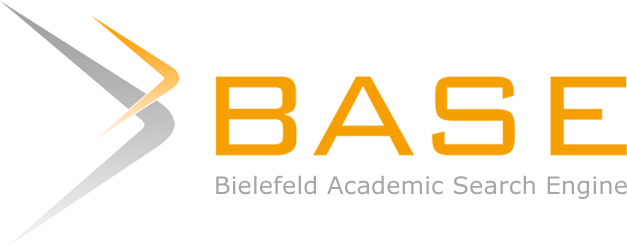Abstract
The concept of fun at work is often discussed in various studies as an activity that supports a positive work climate and provides a variety of positive experiences for employees. However, there is debate in seeing the impact of implementing fun at work in the workplace, especially in the context of public services. To date, research related to fun at work in the context of public services or government institutions is still very limited. By focusing on the civil servants or ASNs in Indonesia, this study aims to explore the perceptions and experiences of fun at work for ASNs.
This research was conducted with a qualitative study of 12 ASNs from one of the public service offices in the Jakarta area using a semi-structured in-depth interview method. Analysis of the results shows that fun at work is perceived variously, namely as a 'double-edged sword', an identity balancer, and a medium for egalitarian and family relatedness. This research contributes empirically in enriching the meaning of fun at work in the context of public services and ASN in Indonesia. The results of this study can be used as a reference for organizations in the public sector in implementing various policies that can support a positive work climate.
References
Barr, P. S. (2015). Current and potential importance of qualitative methods in strategy research. In D. J. Ketchen & D. D. Bergh (Eds.), Research methodology in strategy and management (Vol. 1, pp. 165-188). Emerald Group Publishing Limited. https://doi.org/10.1016/S1479-8387(04)01106-3
Becker, F. (2012). The impact of fun in the workplace on experienced fun, work engagement, constituent attachment, and turnover among entry-level service employees (Doctoral dissertation). Pennsylvania State University. Retrieved from https://etda.libraries.psu.edu/files/final_submissions/7974
Becker, F. W., & Tews, M. J. (2018). Fun activities at work : Do they matter to hospitality employees ? Journal of Human Resources in Hospitality & Tourism, 15(3), 279–296. https://doi.org/10.1080/15332845.2016.1147938
Bhatti, M., Alshagawi, M., & Juhari, A. (2018). Mediating the role of work engagement between personal resources (self-efficacy, the big five model) and nurses’ job performance. International Journal of Human Rights in Healthcare, 11. https://doi.org/10.1108/IJHRH-10-2017-0056
Bolton, S. C., & Houlihan, M. (2009). Are we having fun yet? A consideration of workplace fun and engagement. Employee Relations, 31(6), 556–568. https://doi.org/10.1108/01425450910991721
95
Braun, V., & Clarke, V. (2006). Using thematic analysis in psychology. Qualitative Research in Psychology, 3(2), 77-101. https://doi.org/10.1191/1478088706qp063oa
Chen, H., & Ayoun, B. (2019). Is negative workplace humor really all that “negative”? Workplace humor and hospitality employees job embeddedness. International Journal of Hospitality Management, 79(December 2018), 41–49. https://doi.org/10.1016/j.ijhm.2018.12.010
Chernyak-Hai, L., & Rabenu, E. (2018). The New Era Workplace Relationships: Is Social Exchange Theory Still Relevant? Industrial and Organizational Psychology, 11(3), 456–481. https://doi.org/10.1017/iop.2018.5
Costanza, D. P., Badger, J. M., Fraser, R. L., Severt, J. B., & Gade, P. A. (2012). Generational Differences in Work-Related Attitudes : A Meta-analysis. 375–394. https://doi.org/10.1007/s10869-012-9259-4
Costea, B., Crump, N., & Holm, J. (2005). Culture and Organization Dionysus at work ? The ethos of play and the ethos of management Dionysus at Work ? The Ethos of Play and the Ethos of Management. October 2014, 37–41. https://doi.org/10.1080/14759550500091069
Creswell, J. W. (2014). Research design: Qualitative, quantitative, and mixed methods approaches (4th ed.). Thousand Oaks, CA: Sage.
Cropanzano, R., Anthony, E. L., Daniels, S. R., & Hall, A. V. (2017). Social exchange theory: A critical review with theoretical remedies. Academy of Management Annals, 11(1), 479-516.
Cropanzano, R., & Mitchell, M. S. (2014). Social Exchange Theory : An Interdisciplinary Review Social Exchange Theory : An Interdisciplinary Review. December 2005. https://doi.org/10.1177/0149206305279602
Deal, T. E., & Kennedy, A. A. (1982). Corporate cultures: The rites and rituals of corporate life. Reading, MA: Addison-Wesley.
Delamater, J. (2006). Handbook of social psychology. Springer.
Dwyer, S. C., & Buckle, J. L. (2009). The space between: On being an insider-outsider in qualitative research. International Journal of Qualitative Methods, 8(1), 54-63.
Fluegge-Woolf, E. R. (2014). Play hard, work hard: Fun at work and job performance. Management Research Review, 37(8), 682–705. https://doi.org/10.1108/MRR-11-2012-0252
Ford, C. R., McLaughlin, S. F., & Newstrom, W. J. (2003). Questions and answers about fun at work. HR. Human Resource Planning, 26, 18. Retrieved from http://uq.summon.serialssolutions.com/link/0/eLvHCXMwQ7QykcsDI8LlAbCnYm6gawQei0NEOFJh7ybKIOvmGuLsoQsrNONTcnLiQZfnmpsamhsa8h3es3yxWaCH8UyzZxaLV1r6AABrxCok
Han, S. J., Lee, H., Beyerlein, M., & Kolb, J. A. (2015). The role of fun in team effectiveness: The experience of U.S. and South Korean workers. The International Journal of Human Resource Management, 26(18), 2457–2471. https://doi.org/10.1080/09585192.2014.985330
Hofstede, G. (2011). Dimensionalizing cultures: The Hofstede model in context. Journal of Psychology and Culture, 2, 1-26.
Homans, G. C. (1958). Social behavior as exchange. American Journal of Sociology, 63(6), 597–606. https://doi.org/10.1086/222355
Jennings, G. (2005). Interviewing: A focus on qualitative techniques. In A. Pritchard (Ed.), Tourism research methods: Integrating theory with practice (pp. 99-113). Wallingford, UK: CABI. https://doi.org/10.1079/9780851999968.0099
Jing, J., Niyomsilp, E., Li, R., & Gao, F. (2021). Effect of workplace fun on Chinese nurse innovative behaviour: The intermediary function of affective commitment. Journal of Nursing Management, 29(7), 2250–2259. https://doi.org/10.1111/jonm.13387
Karl, K., & Peluchette, J. (2006). How does workplace fun impact employee perceptions of customer service quality? Journal of Leadership & Organizational Studies, 13(2), 2–13. https://doi.org/10.1177/10717919070130020201
Lamm, E., Meeks, M. D., Macky, K., Gardner, D., Forsyth, S., Lamm, E., & Meeks, M. D. (2009). Workplace fun: The moderating effects of generational differences. Team Performance Management, 15(1/2), 68–78. https://doi.org/10.1108/01425450910991767
Luthfi, M., Hakim, A., & Soetjipto, B. W. (2020). The effects of leader-member exchange and fun at work on work engagement and deviant workplace behavior in Indonesian telecommunication company. KnE Social Sciences, 4(6), 266–279. https://doi.org/10.18502/kss.v4i6.6603
Longman Dictionary of Contemporary English. (n.d.). Double edged sword. Longman Dictionary of Contemporary English. Diakses 24 Mei 2024, dari https://www.ldoceonline.com/dictionary/a-double-edged-sword-weapon#google_vignette
Martson, C. (2007). Motivating the “What’s in it for Me” Workforce: Manage across the Generational Divide and Increase Profits. Wiley, Hoboken, NY.
McDowell, T. (2004). Fun at work: Scale development, confirmatory factor analysis, and links to organizational outcomes. San Diego: Alliant International University.
Michel, J. W., Tews, M. J., & Allen, D. G. (2018). Fun in the workplace: A review and expanded theoretical. Human Resource Management Review, 28(1), 1–13. https://doi.org/10.1016/j.hrmr.2018.03.001
Mitchell, M. S., Cropanzano, R., & Quisenberry, D. M. (2012). Social exchange theory: A critical review with theoretical remedies. Academy of Management Annals, 5(1), 1–55. https://doi.org/10.5465/19416520.2011.593320
Mousa, M. (2022). How workplace fun is experienced in the banking sector? A qualitative study. Employee Relations, 44(1), 158-174. https://doi.org/10.1108/ER-04-2020-0156
Müceldili, B., & Erdil, O. (2016). Finding Fun in Work: The Effect of Workplace Fun on Taking Charge and Job Engagement. Procedia - Social and Behavioral Sciences, 235, 304–312. https://doi.org/10.1016/j.sbspro.2016.11.034
Nindita, H., & Umasugi, R. A. (2022). Cara Cerdas Bermedia Sosial. Pusdiklat Kementerian Perdagangan RI. Diakses 9 Juni 2024, dari https://pusdiklat.kemendag.go.id/storage/publikasi/tVn2bSC7loSobAxd8MoNPnNegisFmNaQx5zgwKNJ.pdf
Owler, K., Morrison, R., & Plester, B. (2010). Does fun work? The complexity of promoting fun at work. Journal of Management & Organization, 16(3), 338-352. https://doi.org/10.5172/jmo.16.3.338
Peluchette, J., & Karl, K. A. (2005). Fun Into the Health Care Workplace. Journal of Healthcare Management, 24(3), 268–275.
Phillimore, J., & Goodson, L. (2004). Qualitative research in tourism: Ontologies, epistemologies and methodologies. Routledge.
Plester, B. (2009). Crossing the line: Boundaries of workplace humour and fun. Employee Relations, 31(6), 584–599. https://doi.org/10.1108/01425450910991749
Plester, B., & Hutchison, A. (2016). Fun times: The relationship between fun and workplace engagement. Employee Relations, 38(3), 332–350. https://doi.org/10.1108/ER-03-2014-0027
Rabenu, E., & Tziner, A. (2016). Performance appraisal in a constantly changing work world. Industrial and Organizational Psychology, 9(2), 370–377. https://doi.org/10.1017/iop.2016.28
Ridder, H. & Hoon, C. (2009). Introduction to the special issue: Qualitative methods in research on Human Resource Management. Introduction to the Special Issue: Qualitative Methods. https://doi.org/10.1177/239700220902300201
Ritzer, G., & Goodman, D. J. (2005). Sociological theory (6th ed.). McGraw-Hill.
Sakr, C., Zotti, R., & Khaddage-Soboh, N. (2019). The impact of implementing fun activities on employee’s engagement: The case of Lebanese financial institutions. International Journal of Organizational Analysis, 27(5), 1317–1335. https://doi.org/10.1108/IJOA-09-2018-1527
Strauss, A., & Corbin, J. M. (1990). Basics of qualitative research: Grounded theory procedures and techniques. Sage Publications, Inc.
Sumayya, U., Amen, U., & Imran, R. (2021). Workplace fun and creative performance of employees. Reviews of Management Sciences, 3(1), 37–48. https://doi.org/10.53909/rms.03.01.069
Sutarto, H. (2020). ASN serba salah: bagaimana birokrat Indonesia kian jadi bulan-bulanan kala pandemi. The Conversation. https://theconversation.com/asn-serba-salah-bagaimana-birokrat-indonesia-kian-jadi-bulan-bulanan-kala-pandemi-141779
Tews, M. J., Michel, J. W., & Bartlett, A. (2012). The Fundamental Role of Workplace Fun in Applicant Attraction. Journal of Leadership and Organizational Studies, 19(1), 105–114. https://doi.org/10.1177/1548051811431828
Tsaur, S., Hsu, F., & Lin, H. (2019). Workplace fun and work engagement in tourism and hospitality: The role of psychological capital. International Journal of Hospitality Management, 81(February), 131–140. https://doi.org/10.1016/j.ijhm.2019.03.016
Twenge, J. M., Campbell, S. M., Hoffman, B. J., Lance, C. E., & Lance, C. E. (2010). Generational differences in work values: Leisure and extrinsic values increasing, social and intrinsic values decreasing. Journal of Management, 36(5), 1117-1142. https://doi.org/10.1177/0149206309352246
Vaismoradi, M., Jones, J., Turunen, H., & Snelgrove, S. (2016). Theme development in qualitative content analysis and thematic analysis. Journal of Nursing Education and Practice, 6(5), 100-110. https://doi.org/10.5430/jnep.v6n5p100strauss
Warren, S., & Fineman, S. (2007). ‘Don’t get me wrong, it’s fun here, but…’: Ambivalence and paradox in a ‘fun’ work environment. In R. Westwood & C. Rhodes (Eds.), Humour, Work and Organization (pp. 92-112). Routledge.
Bahasa Abstract
Konsep fun at work atau kesenangan dalam tempat kerja seringkali dibahas di berbagai penelitian sebagai suatu aktivitas yang mendukung iklim kerja yang positif dan memberikan berbagai pengalaman yang positif bagi karyawan. Namun, terdapat perdebatan dalam melihat dampak dari penerapan fun at work di tempat kerja, khususnya dalam konteks pelayanan publik. Hingga saat ini, penelitian terkait fun at work dalam konteks pelayanan publik atau instansi pemerintah masih sangat terbatas. Dengan berfokus pada konteks aparatur sipil negara (ASN) di Indonesia, penelitian ini bertujuan untuk mengeksplorasi persepsi dan pengalaman fun at work bagi ASN.
Penelitian ini dilakukan dengan studi kualitatif terhadap 12 orang ASN dari salah satu kantor pelayanan publik di wilayah Jakarta dengan metode wawancara mendalam semi terstruktur. Analisis hasil menunjukkan bahwa fun at work dipersepsikan secara beragam, yaitu sebagai sebagai ‘pedang bermata dua’, penyeimbang identitas, dan alat kesetaraan dan kekeluargaan. Penelitian ini berkontribusi secara empiris dalam memperkaya pemaknaan fun at work dalam konteks pelayanan publik dan ASN di Indonesia. Hasil penelitian ini dapat dimanfaatkan sebagai acuan organisasi di sektor publik dalam menerapkan berbagai kebijakan yang dapat mendukung iklim kerja yang positif.
Recommended Citation
Wibawa, Febrian and Sari, Nayunda Andhika
(2025)
"Fun At Work dari Sudut Pandang Aparatur Sipil Negara (ASN): Studi Kualitatif pada Instansi Pemerintahan di Indonesia,"
Jurnal Manajemen dan Usahawan Indonesia: Vol. 48:
Iss.
1, Article 2.
DOI: 10.7454/jmui.v48i1.1094
Available at:
https://scholarhub.ui.ac.id/jmui/vol48/iss1/2







